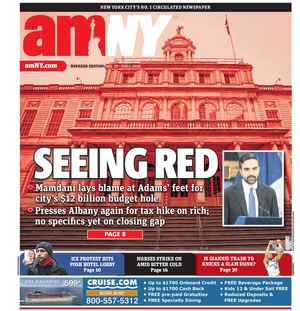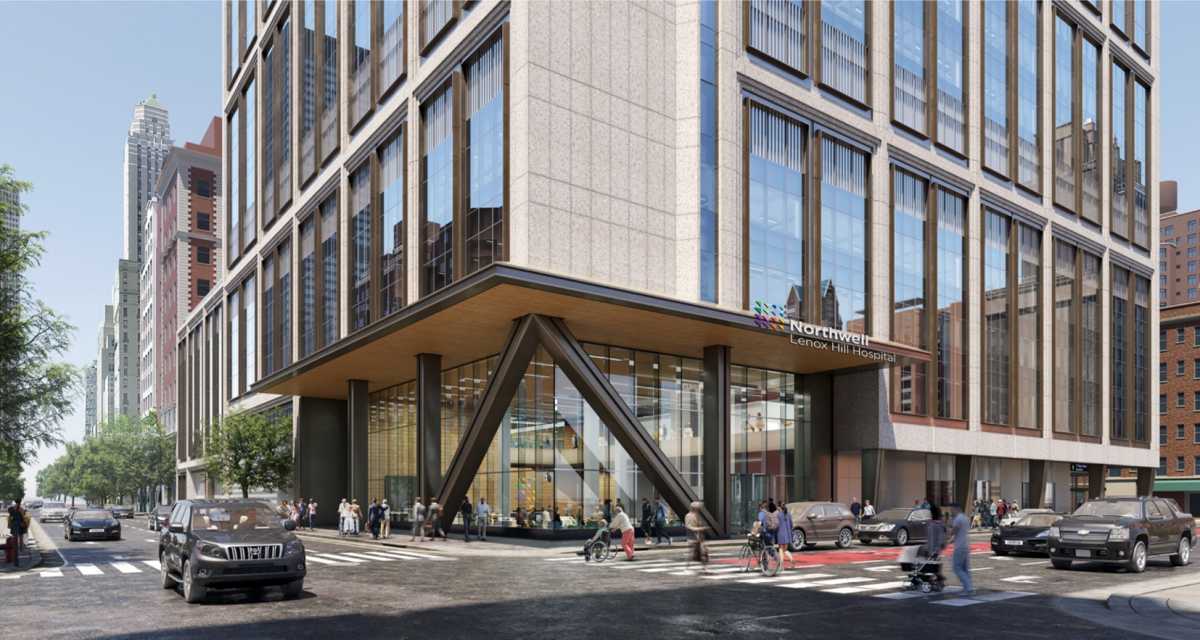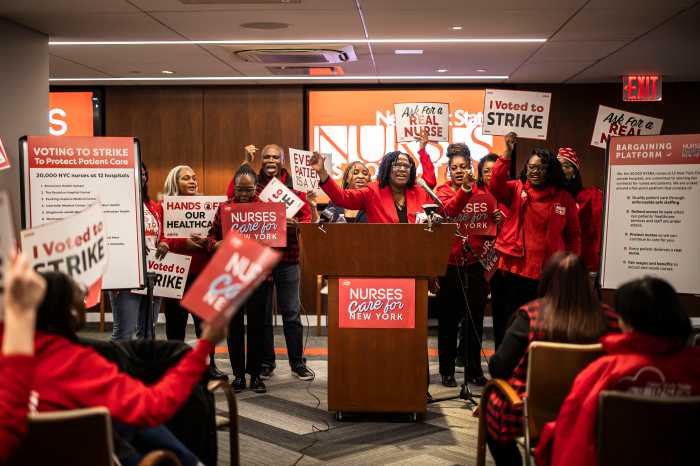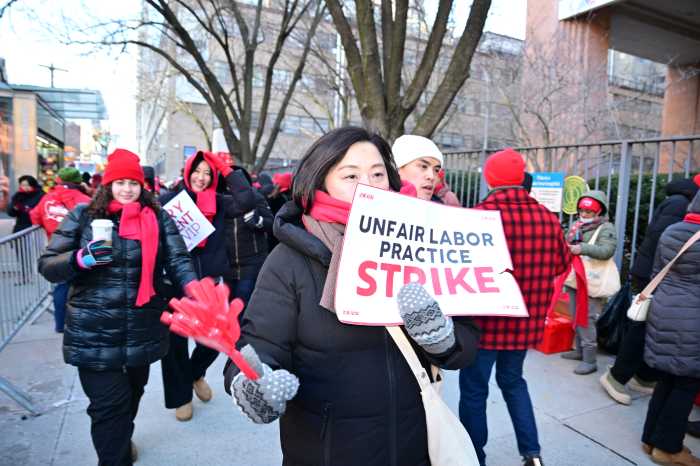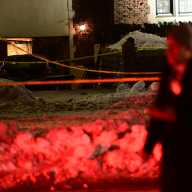After scaling down its plans to expand and modernize Lenox Hill Hospital, Northwell Health won a City Council committee’s approval and unanimous Council approval amid some local residents’ continuing concerns.
The project, reduced from a 436-foot tower to 370 feet, was approved by the Council’s Land Use Committee before a unanimous City Council vote in its favor on Aug. 14.
Northwell, following the vote, said the “revitalization of Lenox Hill Hospital represents a major milestone for New York City.” The healthcare system said it looks forward to “building a modern hospital that will deliver exceptional care for generations of New Yorkers,” as well as “continuing to be a trusted partner to our neighbors.”
Councilmember Keith Powers, who represents the area including the hospital, said the latest plan would transform “an aging healthcare facility into a modern, safe, and efficient hospital that can provide the best care possible for New Yorkers.”
He added that he has “long been in agreement with the community that the original proposal was drastically out of scale with the neighborhood,” but believes the scaled down plans, along with some community improvements, are a better fit. A spokeswoman for Councilmember Powers said they were able to bring “the height down without having to sacrifice any hospital beds or services for patients.”
Critics, however, believe this project will bring years of construction followed by disruption to the neighborhood, adding 25 beds to reach 475 single-bedded rooms.
“We were very disappointed with the City Council vote,” said Stephanie Reckler, executive committee member of the Committee to Protect the Lenox Hill Neighborhood, which she said has more than 7,000 signatures on petitions for this version. “The reduction of 66 feet is nothing considering the site is inappropriate to the tower.”
Northwell’s initial proposal included a 516-foot building and a 490-foot residential tower, but Reckler called that “pie in the sky that would never have been approved.” The project, initially estimated to take 11 years to build, is now estimated to last eight years, including five of external construction, which supporters said shaves off a significant amount of time.
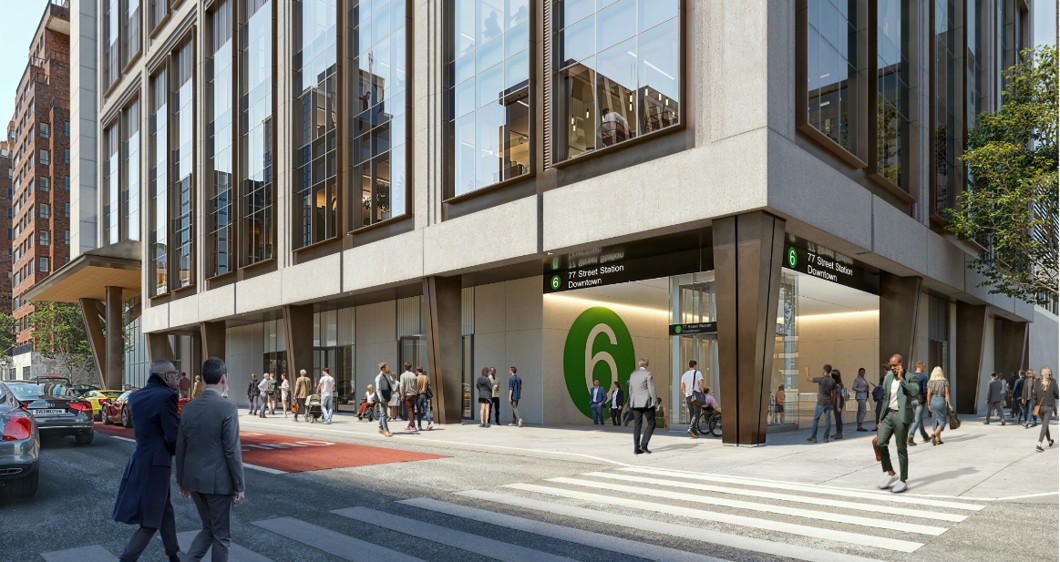
“I think that’s lip service,” Reckler said, noting supply chain, weather and tariffs could impact dates. “There are no penalties for going over the time frame that they claim. Construction in New York is almost never completed on time.”
Ninety-five percent of the new building will be for medical uses, compared to 75% in earlier proposals. And the tower includes an expanded emergency department, new operating rooms, a dedicated Mother-Baby Hospital, drive-through ambulance bay and private rooms.
It also includes more than $27 million in investments, including public transit, streetscape improvements, funding for sanitation, and support for the nearby Wagner Middle School. Councilmember Powers said the approved plan was the “outcome of many conversations with Northwell Health,” which added concessions.
Northwell in the plan outlined other provisions designed to make the project more attractive, such as expanding behavioral services with a new Upper East Side outpatient center for mental health at the nearby Manhattan Eye, Ear, & Throat Hospital.
And it will provide $20 million for a new elevator and entrance on the southbound platform of the 6 line at 77th Street as well as $5 million towards a new elevator on the northbound platform on the 6 line at 77th St. “That’s part of the project,” Reckler said.
The project also includes around $2.5 million toward the allocation of community needs funding. That includes $800,000 for 10 years of additional sanitation services in the neighborhood; $500,000 to fund the Science Lab at Wagner Middle School; $500,000 to improve the streetscape and beautify the neighborhood, including new trees; $300,000 for new health screenings and wellness information events throughout Community Board 8.
There is also $200,000 for rodent abatement in the Lenox Hill area; $150,000 for homelessness outreach; and $100,000 for programming for New York City Public School students. Ambulance bays on the original plan involved driving in and out on 77th Street, but the new plan is for them to drive in on 77th St. and drive out on 76th Street. “It reduces the hazard of backing out,” Reckler said.
While Northwell has said it’s not seeking to attract more patients, Reckler said their 2024 annual report indicates management should focus on “market share growth.” “The site is inappropriate to the tower they want to put up,” Reckler said. “They could easily renovate Lenox Hill Hospital as the best community hospital in New York City. This tower is nothing short of an advertisement, a billboard to attract wealthy patients.”
Projects such as this need certificates of need, granted by the New York State Department of Health and the Public Health and Health Planning Council. “Not for a minute is this over,” Reckler said. “We will take this to Albany, to a certificate of need. It’s not over until it’s over.”
Lenox Hill Hospital, a 450-bed acute care facility on the Upper East Side, was founded in 1857 as the German Dispensary to serve a growing immigrant population. The hospital treats more than 144,000 patients annually, including 52,000 emergency visits, 21,000 surgeries, and 4,000 births.
